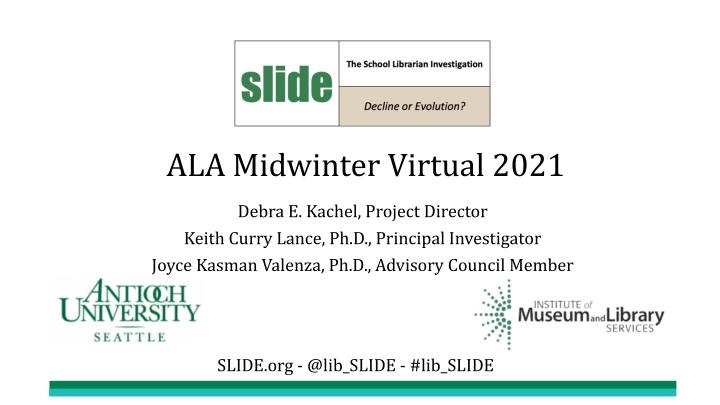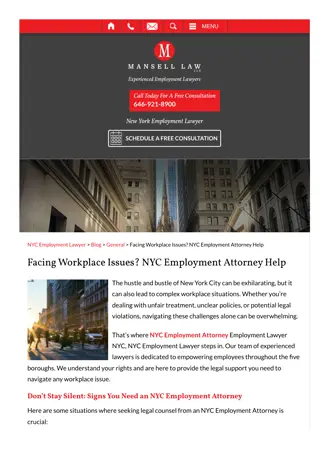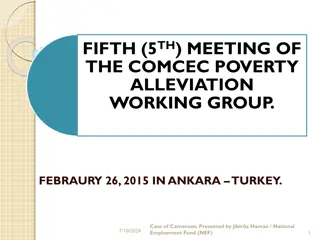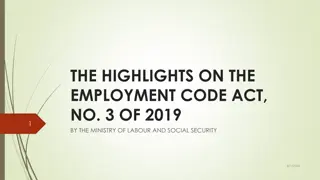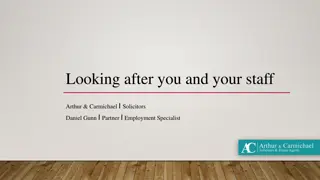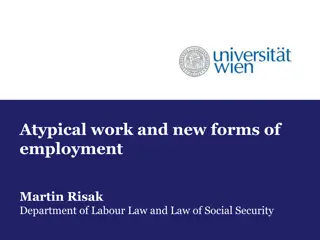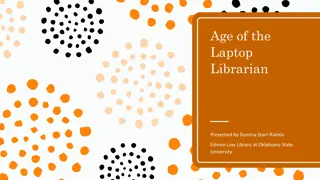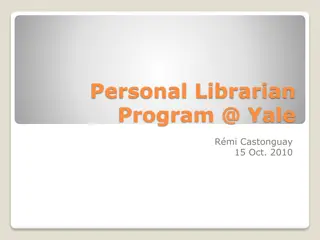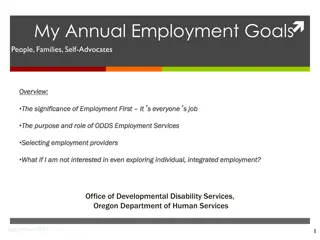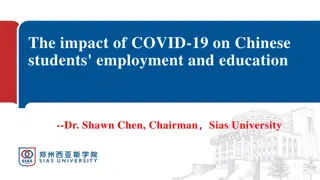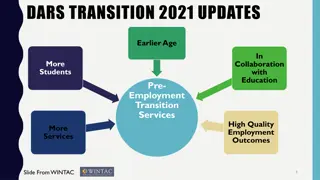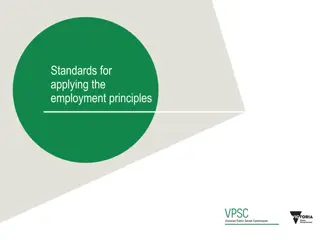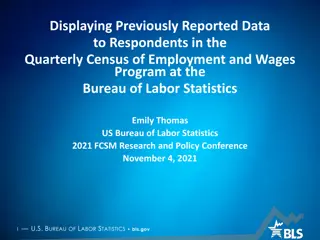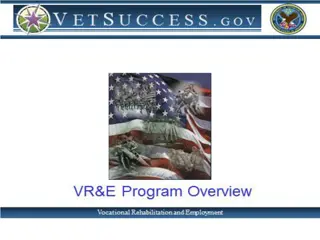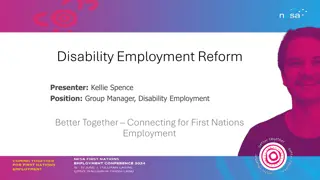Investigating Trends in School Librarian Employment: The SLIDE Project
The SLIDE project examines the decline in school librarian positions nationwide, exploring factors like equity of access, job titles, and staffing choices. It involves assessing federal data accuracy, interviewing decision-makers, and analyzing state contexts to understand the evolving role of school librarians. The project involves various stakeholders and utilizes federal data strengths while navigating limitations at the state and district levels.
Download Presentation

Please find below an Image/Link to download the presentation.
The content on the website is provided AS IS for your information and personal use only. It may not be sold, licensed, or shared on other websites without obtaining consent from the author.If you encounter any issues during the download, it is possible that the publisher has removed the file from their server.
You are allowed to download the files provided on this website for personal or commercial use, subject to the condition that they are used lawfully. All files are the property of their respective owners.
The content on the website is provided AS IS for your information and personal use only. It may not be sold, licensed, or shared on other websites without obtaining consent from the author.
E N D
Presentation Transcript
ALA Midwinter Virtual 2021 Debra E. Kachel, Project Director Keith Curry Lance, Ph.D., Principal Investigator Joyce Kasman Valenza, Ph.D., Advisory Council Member SLIDE.org - @lib_SLIDE - #lib_SLIDE
What Motivated SLIDE The School Librarian Investigation Decline or Evolution? Only federal data on school librarian employment suggests dramatic declines in librarian FTEs nationwide & in most states. Anecdotal evidence suggests at least some decline may result from librarians evolving into something else or many something- elses. SLIDE.org - @lib_SLIDE - #lib_SLIDE
Research Issues 1. Equity of access to school librarians (district size, urban/suburban/rural, race/ethnicity, school funding, and poverty) 2. Job titles, skills & responsibilities valued by staffing decision-makers 3. Factors influencing staffing choices 4. Perceived advantages of staffing choices SLIDE.org - @lib_SLIDE - #lib_SLIDE libslide.org - @libslide - #libslide
Whos Involved in SLIDE Project Staff Kachel & Lance Other staff: RSL Research Group researchers, interviewers, website designer & project evaluator National Partners Future Ready Schools/Alliance for Excellent Education (All4Ed) International Society for Technology in Education (ISTE) State Intermediaries Advisory Council SLIDE.org - @lib_SLIDE - #lib_SLIDE
What SLIDE Involves Assessing accuracy of federal data, analyzing patterns & providing interactive access Interviewing district decision-makers with greatest gains & losses to learn their perceptions & factors influencing staffing decisions Collecting & analyzing data on varying state contexts Content-analyzing job descriptions SLIDE.org - @lib_SLIDE - #lib_SLIDE
Federal Data - Strengths 1. NCES CCD ( National Center for Education Statistics Common Core of Data) collected since 1980s 2. Includes all regular & charter districts (charter districts usually single schools) 3. Librarian employment in FTEs, full-time equivalents (better than part-time head counts) 4. Availability of other staffing & district/demographic data to assess equity SLIDE.org - @lib_SLIDE - #lib_SLIDE
Federal Data - Limitations 1. State & district level not school building level 2. Districts report librarians regardless of state certification (library support staff counted separately) 3. Based on 1980s definition of school librarian (no mention of info literacy, databases, computers, Internet, etc.) 4. No classification for instructional technology, but includes instructional coordinators which may be a catch-all category SLIDE.org - @lib_SLIDE - #lib_SLIDE
Interviews of Decision-Makers Positions involved in providing learning resources & requirements? Recent changes: additions, cuts, reclassifications, job description changes & influencing factors? Is info literacy part of curriculum? If so, how & by whom taught? Is there a school library, learning commons, etc.? How & by whom is space managed & used? SLIDE.org - @lib_SLIDE - #lib_SLIDE
Purposive Sampling Based on essential criteria Prospective interviewee From district that gained or lost most school librarian FTEs per school from 2014-15 to 2018-19 Either made staffing decision or is knowledgeable about it Submitted to an interview SLIDE.org - @lib_SLIDE - #lib_SLIDE
State Survey Data External factors that impact local staffing decisions: Legal requirements for school librarians in schools State government official overseeing school libraries Accrediting associations Availability of academic degree/certification programs Perceived shortages of certified school librarians SLIDE.org - @lib_SLIDE - #lib_SLIDE libslide.org - @libslide - #libslide
What SLIDE Will Deliver 3 major reports Perspectives (federal data) Contexts (state survey) Voices (interviews) 2 videos Multiple infographics Website with tools to select customized data & generate tables, charts & maps Twitter: @lib_SLIDE Conference presentations Articles in library & education publications SLIDE.org - @lib_SLIDE - #lib_SLIDE libslide.org - @libslide - #libslide
Trends in Analysis To Date Major inequities in current access to librarians (2018-19) based on district enrollment, students living in poverty, district setting (suburban/town vs. urban/rural), race/ethnicity of students (majority Hispanic/non-Hispanic districts), per pupil expenditures (though not linear) English language learners/ESL students Similar inequities in long-term access to librarians (3, 5, 10 years) Vast majority of charter districts report no librarians SLIDE.org - @lib_SLIDE - #lib_SLIDE
SLIDE: The School Librarian Investigation Evolution or Decline? This project was made possible in part by the Institute of Museum and Library Services Laura Bush 21st Century Librarian Grant Project RE-246368-OLS-20. Its views, findings, conclusions & recommendations do not necessarily represent those of IMLS. Project contacts: Debra Kachel dkachel@antioch.edu Keith Curry Lance keithlance@comcast.net
